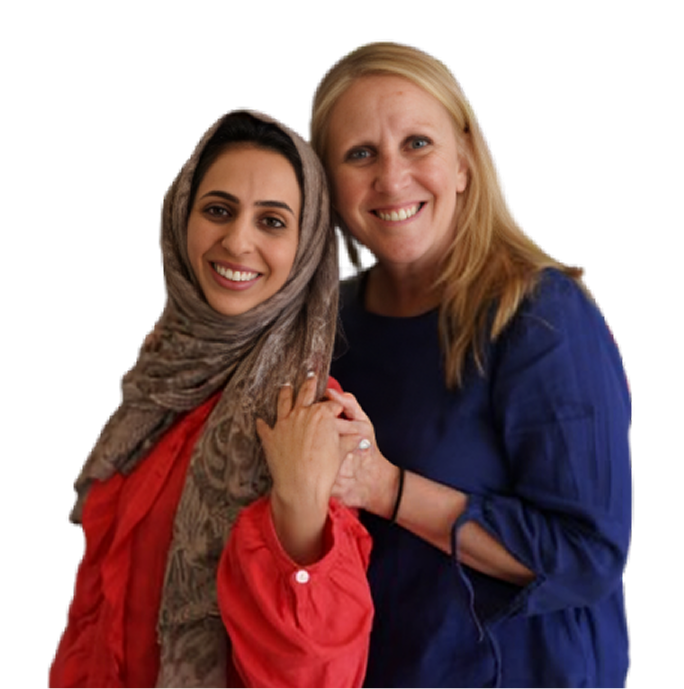Home » Arabic Learning Tips » Overcoming Self-Imposed Limitations While Learning Arabic

Click PLAY above to listen to this episode.
I often listen to wellness podcasts in order to glean wisdom to encourage or guide Arabic language learners into healthy learning mindsets. In an episode of On Purpose, Jay Shetty’s very popular wellness podcast, he interviews Jim Kwik, author of the bestselling book, Limitless. Kwik is an expert in brain performance and memory improvement.
This topic is especially relevant to learning a challenging language like Arabic. Over and over again I’ve seen Arabic learners psyche themselves out before they even get started. It can be startling to hear the kind of messages some Arabic learners tell themselves throughout their language learning process, sometimes even after they have become conversational.
Jim Kwik recognizes language learning as one of the realms where the limitations you set for yourself become self fulfilled prophecies. After a suffering a childhood brain injury, he refused to accept boundaries placed on him. His work emphasizes the need for mind-management, which he says is much more important than our time-management.
While learning Arabic, people often get concerned that they need to manage their time well. They are right. There are a lot of things vying for our time when we live overseas. How much time should I set aside for sessions, reviewing, practicing, or being with people?
While these are important, let’s also make sure that we do some mind-management.
What limitations are you imposing on yourself?
Can you think of one?
Maybe you can think of several.
“I have a poor memory.”
“I am too old to learn a new language.”
“I cannot pronounce anything correctly without seeing words written.”
What limiting messages do we carry around with us that need transcended?
What if you changed your self-talk? Instead of saying, “I can’t conjugate verbs,” you could begin saying to yourself, “I can’t conjugate verbs yet, but I’m closer than I was last month.”
What self-limiting thoughts are getting in your way? Are these thoughts based on a perception of yourself that you need to discard for the task ahead? Could you counter these thoughts by looking for evidence to the contrary? Do others agree with your self-assessment or might someone say you too harsh with yourself? What self-compassion phrases could you speak to yourself in order to deal more gently with yourself as you learn? I found in my own life that changing my self-messaging has had a profound impact on the level of joy I experience while engaging in challenging pursuits.
What if you were able to transcend these negative self-prescriptive statements and replace them with positive ones, or at least a thought that is not prescriptively self-defeating? How would your life change? How would your Arabic learning change? Is it worth giving it a chance? It’s often hard to do alone, but a language coach or a life coach can be of great assistance in this pursuit.
People often ask me what the main variable in successful Arabic learning might be. From what I’ve witnessed, it’s our attitude and our beliefs about what is possible for us personally.
Jim Kwik says that our self-beliefs are actually coping mechanisms that make us feel safe. If, in the end, we do not succeed, we feel justified because we have already mentally prepared for this disappointment. If we’ve already committed to being let down, we won’t actually experience the pain of this actualization if it happens. In reality, not succeeding is far more likely to happen, simply because we believe we will fail.
Don’t prepare for disappointment.
Don’t prematurely assume you will fail.
Expect yourself to succeed.
As Jim Kwik says,
Don’t downgrade your dreams, upgrade your mindset.
Move beyond the textbooks. Start your journey toward authentic conversations and real cultural connection with our immersion-led approach.
